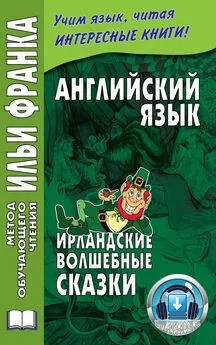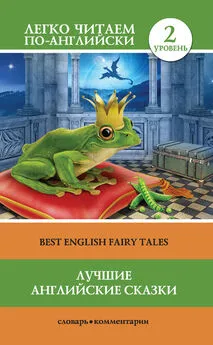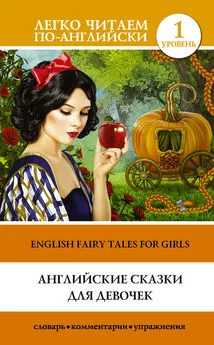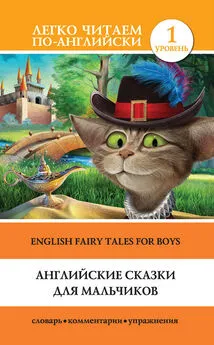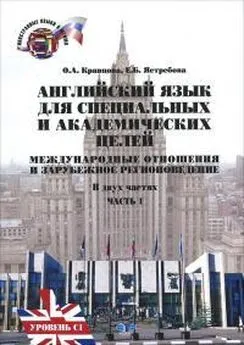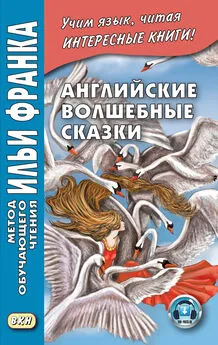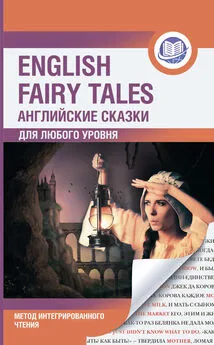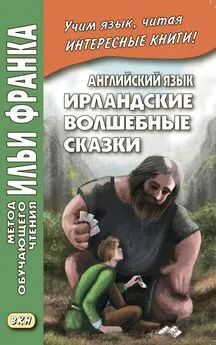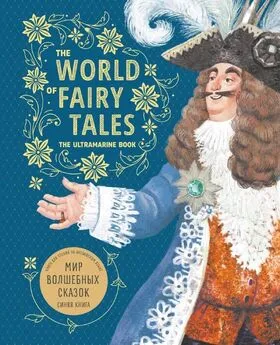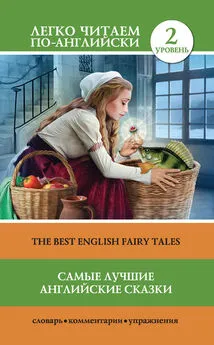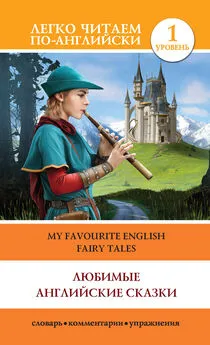Ольга Ламонова - Английский язык. Ирландские волшебные сказки / Irish Fairy Tales
- Название:Английский язык. Ирландские волшебные сказки / Irish Fairy Tales
- Автор:
- Жанр:
- Издательство:Литагент «Восточная книга»1243df63-7956-11e4-82c4-002590591ed2
- Год:2013
- Город:Москва
- ISBN:978-5-7873-0715-3
- Рейтинг:
- Избранное:Добавить в избранное
-
Отзывы:
-
Ваша оценка:
Ольга Ламонова - Английский язык. Ирландские волшебные сказки / Irish Fairy Tales краткое содержание
Сказки и легенды Ирландии, составляющие свой особенный чарующий и загадочный мир, в настоящем издании адаптированы (без упрощения текста оригинала) по методу Ильи Франка. Уникальность метода заключается в том, что запоминание слов и выражений происходит за счет их повторяемости, без заучивания и необходимости использовать словарь.
Пособие способствует эффективному освоению языка, может служить дополнением к учебной программе. Предназначено для широкого круга лиц, изучающих английский язык на начальном этапе.
Английский язык. Ирландские волшебные сказки / Irish Fairy Tales - читать онлайн бесплатно ознакомительный отрывок
Интервал:
Закладка:

 At last he saw a black spot on the water, then a boat. When it was near he saw two men sitting in the stern of the boat. When it touched land, the two, who were duine uasal in appearance, jumped out, and one of them pulled the boat to the top of the strand. Then that one, followed by the other, came to where the old fisherman was waiting, and asked, “What trouble is on you now, my good man?”
At last he saw a black spot on the water, then a boat. When it was near he saw two men sitting in the stern of the boat. When it touched land, the two, who were duine uasal in appearance, jumped out, and one of them pulled the boat to the top of the strand. Then that one, followed by the other, came to where the old fisherman was waiting, and asked, “What trouble is on you now, my good man?”
“I had a son(у меня был сын) that wasn’t so keen nor so wise as another(который не был ни столь проницательным, ни столь мудрым, как другие) , and myself and this son were here fishing(а я сам и этот /мой/ сын были здесь, рыбачили) , and a stranger came(и пришел один незнакомец) , like yourself today(как вы сами /пришли/ сегодня) , and asked would I let my son with him for a year and a day(и спросил, не отпущу ли я своего сына с ним ровно на год) . I let the son go(я отпустил своего сына: «я позволил сыну пойти») , and the man promised to be here with him today(и тот человек пообещал быть здесь вместе с ним сегодня) , and that’s why I am waiting at this place now(вот почему я и жду на этом месте сейчас) .”

 “I had a son that wasn’t so keen nor so wise as another, and myself and this son were here fishing, and a stranger came, like yourself today, and asked would I let my son with him for a year and a day. I let the son go, and the man promised to be here with him today, and that’s why I am waiting at this place now.”
“I had a son that wasn’t so keen nor so wise as another, and myself and this son were here fishing, and a stranger came, like yourself today, and asked would I let my son with him for a year and a day. I let the son go, and the man promised to be here with him today, and that’s why I am waiting at this place now.”
“Well(ну) ,” said the Gruagach, “am I your son(я /ли/ твой сын) ?”
“You are not(нет) ,” said the fisherman.
“Is this man here your son(а этот человек здесь, /он/ твой сын) ?”
“I don’t know him(я его не знаю) ,” said the fisherman.
“Well, then, he is all you will have in place of your son(что ж, тогда он – это все, что ты получишь взамен своего сына: «будешь иметь вместо своего сына») ,” said the Gruagach.

 “Well,” said the Gruagach, “am I your son?”
“Well,” said the Gruagach, “am I your son?”
“You are not,” said the fisherman.
“Is this man here your son?”
“I don’t know him,” said the fisherman.
“Well, then, he is all you will have in place of your son,” said the Gruagach.
The old man looked again(старик снова взглянул /на того/) , and knew his son(и узнал своего сына; to know /knew, known/ – знать; узнавать ) . He caught hold of him(он обнял его; to catch /caught/ – ловить, поймать, схватить; hold – удерживание, захват; to catch hold of – брать, хватать ) and welcomed him home(и радушно приветствовал его: «приветствовал его дома»).
“Now(ну) ,” said the Gruagach, “isn’t he a better man than he was a year ago(разве он не стал человеком лучше, чем он был год тому назад) ?”
“Oh, he’s nearly a smart man now(теперь он почти что толковый парень; smart – резкий, суровый; толковый, сообразительный, находчивый ) !” said the old fisherman.
“Well(что ж) ,” said the Gruagach, “will you let him with me for another year and a day(отпустишь ли ты его со мной еще на один год и один день = ровно на год) ?”
“I will not(нет) ,” said the old man; “I want him myself(он мне нужен самому; to want – хотеть, желать; нуждаться /в ком-л./ ) .”

 The old man looked again, and knew his son. He caught hold of him and welcomed him home.
The old man looked again, and knew his son. He caught hold of him and welcomed him home.
“Now,” said the Gruagach, “isn’t he a better man than he was a year ago?”
“Oh, he’s nearly a smart man now!” said the old fisherman.
“Well,” said the Gruagach, “will you let him with me for another year and a day?”
“I will not,” said the old man; “I want him myself.”
The Gruagach then begged and craved(тогда Груагах стал просить и умолять; to beg – просить; умолять, просить; to crave – страстно желать, жаждать; просить, умолять ) till the fisherman promised(до тех пор, пока рыбак не пообещал) to let the son with him for a year and a day again(снова отпустить своего сына с ним еще на один год и один день) . But the old man forgot to take his word of the Gruagach(но старик позабыл взять с Груагаха обещание: «его слово»; to forget /forgot, forgotten/; word – слово; обещание, слово ) to bring back the son at the end of the time(вернуть: «привести обратно» его сына по окончании того периода времени; time – время; период времени ) ; and when the Gruagach and the boy were in the boat(и когда Груагах и юноша /уже/ были в лодке) , and had pushed out to sea(и вытолкнули ее в море) , the Gruagach shouted to the old man(Груагах прокричал старику),

 The Gruagach then begged and craved till the fisherman promised to let the son with him for a year and a day again. But the old man forgot to take his word of the Gruagach to bring back the son at the end of the time; and when the Gruagach and the boy were in the boat, and had pushed out to sea, the Gruagach shouted to the old man,
The Gruagach then begged and craved till the fisherman promised to let the son with him for a year and a day again. But the old man forgot to take his word of the Gruagach to bring back the son at the end of the time; and when the Gruagach and the boy were in the boat, and had pushed out to sea, the Gruagach shouted to the old man,
“I kept my promise to bring back your son today(я сдержал свое обещание привести назад = вернуть твоего сына сегодня; to keep /kept/ – держать, иметь, хранить; сдержать /слово, обещание/ ) . I haven’t given you my word at all now(теперь же я вовсе не давал тебе своего обещания; to give /gave, given/ ) . I’ll not bring him back(я не привезу его обратно) , and you’ll never see him again(и ты никогда не увидишь его снова) .”

 “I kept my promise to bring back your son today. I haven’t given you my word at all now. I’ll not bring him back, and you’ll never see him again.”
“I kept my promise to bring back your son today. I haven’t given you my word at all now. I’ll not bring him back, and you’ll never see him again.”
The fisherman went home with a heavy and sorrowful heart(рыбак пошел домой с тяжелым и печальным сердцем; heavy – тяжелый, тяжеловесный; тяжелый, тягостный, тяжкий; sorrow – печаль, горе ) , and the old woman scolded him all that night till next morning(и старуха бранила его всю ночь /напролет/ до самого: «следующего» утра) for letting her son go with the Gruagach a second time(за то, что он позволил ее сыну уйти с Груагахом во второй раз).

 The fisherman went home with a heavy and sorrowful heart, and the old woman scolded him all that night till next morning for letting her son go with the Gruagach a second time.
The fisherman went home with a heavy and sorrowful heart, and the old woman scolded him all that night till next morning for letting her son go with the Gruagach a second time.
Then himself and the old woman were lamenting a quarter of a year(затем он сам и /его/ старуха горевали /целых три месяца/: «четвертую часть года») ; and when another quarter had passed(а когда прошли следующие три месяца: «когда другая четверть /года/ прошла»; to pass – идти, проходить; идти, проходить, пролетать /о времени/ ) , he said to her(он сказал ей) , “I’ll leave you here now(сейчас я оставлю тебя здесь) , and I’ll be walking on myself(а сам отправлюсь в путь и буду идти /до тех пор/) till I wear my legs off up to my knees(пока не сотру ноги до колен; to wear – носить /одежду и т. п./, надевать; изнашивать, протирать; to wear off – стираться ) , and from my knees to my waist(и от колен до пояса: «до талии») , till I find where is my son(пока я не найду, где мой сын) .”

 Then himself and the old woman were lamenting a quarter of a year; and when another quarter had passed, he said to her, “I’ll leave you here now, and I’ll be walking on myself till I wear my legs off up to my knees, and from my knees to my waist, till I find where is my son.”
Then himself and the old woman were lamenting a quarter of a year; and when another quarter had passed, he said to her, “I’ll leave you here now, and I’ll be walking on myself till I wear my legs off up to my knees, and from my knees to my waist, till I find where is my son.”
Интервал:
Закладка:
